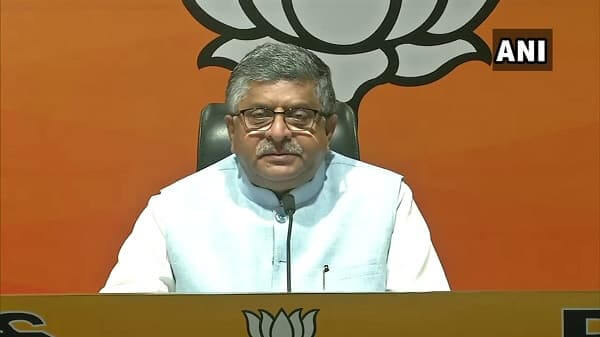Taking the user privacy war to the court over new IT rules, Facebook-owned WhatsApp on Wednesday filed a lawsuit against the Indian government in the Delhi High Court, saying that user privacy is in its DNA and requiring messaging apps to “trace” chats undermines people’s right to privacy.
The Ministry of Electronics and Information Technology (MeitY) had asked social media platforms to abide by the Information Technology (Intermediary Guidelines and Digital Media Ethics Code) Rules, 2021 by May 25, or face strict action.
WhatsApp submitted a petition that the requirement will force it to break end-to-end encryption on its messaging service, as well as the privacy principles underlying it, and infringe upon the fundamental rights to privacy and free speech of the hundreds of millions of citizens using it to communicate privately and securely.
“Petitioner would be forced to build the ability to identify the first originator for every message sent in India on its platform upon request by the government forever. This breaks end-to-end encryption and the privacy principles underlying it, and impermissibly infringes upon users’ fundamental rights to privacy and freedom of speech,” added the Whatsapp plea.
WhatsApp said there is no way to predict which message will be the subject of a tracing order, therefore it would be forced to build the ability to identify the first originator for every message sent in India on its platform upon request by the government forever.
To satisfy the legality requirement, there must be a valid law allowing for the invasion of privacy, it said.
“However, there is no statute requiring intermediaries to enable the identification of the first originator of information in India on end-to-end encrypted messaging services upon government or court order. Nor is there any statute that allows the imposition of such a requirement through subordinate legislation like the Intermediary Rules,” said the petition.

“The Government of India is committed to ensure the Right of Privacy to all its citizens but at the same time it is also the responsibility of the government to maintain law and order and ensure national security,” an official statement quoted the IT Minister Prasad as saying.
But it also added that as per all established judicial dictum, no fundamental right, including the right to privacy, is absolute and it is subject to reasonable restrictions.
“The requirements in the Intermediary Guidelines pertaining to the first originator of information are an example of such a reasonable restriction,” it said.
READ ALSO: Facebook adds shopping, pricing tiers to WhatsApp Business
What the experts say
Advocate Khushbu Jain, founder of Ark Legal, said there has been persistent spread of fake news, and rampant abuse of social media to share morphed images of women and contents related to revenge porn have often threatened the dignity of women.
“Privacy is good faith principle – not to be applied to criminals. Right to privacy cannot be an impediment to fair investigation – the world over. WhatsApp cannot maintain double standards: Taking stand of privacy infringement is itself contradictory to their own provision mentioned in their own privacy policy. The new rules establishes the required fine balance between the rights of individuals, mediated by these supranational business interests, and simultaneously preventing state overreach, while preserving incentives for innovation, which is the real-life blood of the Internet,” Jain added.

In July 2019, V. Kamakoti, a professor at IIT Madras, had told the Madras High Court that it is technically possible to add an original identification tag to messages on WhatsApp even with encryption. He added that there is a possibility, if WhatsApp were to introduce a change in its product design, which could include the phone number of the originator whenever a message is forwarded. He further added that being a privacy-entity of WhatsApp does not carry much weight, when users are able to freely forward messages to anyone without consent.
However, Tanmay Singh, associate litigation counsel at the Internet Freedom Foundation, said: “Enabling a traceability option by any means, even if it is not by directly breaking end-to-end encryption, will seriously undermine the very purpose of end-to-end encryption, which is to promote and strengthen user privacy and encourage the freedom of speech. This will threaten the constitutional fundamental rights of millions of users of social media in India.”
WhatsApp has consistently opposed legal action that would break end-to-end encryption. The company is currently fighting the same before the Supreme Court of Brazil on a similar matter.
“We also do not believe traceability can be imposed in a way that cannot be spoofed or modified, leading to new ways for people to be framed for things they did not say or do. Such massive data collection also makes messaging platforms inherently less secure by opening up more avenues for hacking,” WhatsApp had said earlier.
The MeitY had announced its draft new IT (Intermediary Guidelines) Rules for social media platforms on February 25. As per the new rules, the social media platforms will have to remove offending content within 36 hours after a government directive or a legal order.
The new rules mandate that the intermediaries, including social media intermediaries, must establish a grievance redressal mechanism for receiving/resolving complaints from the users or victims.
From IANS reports
READ ALSO: How WhatsApp was extensively abused during India elections
Link up with us!
Indian Link News website: Save our website as a bookmark
Indian Link E-Newsletter: Subscribe to our weekly e-newsletter
Indian Link Newspaper: Click here to read our e-paper
Indian Link app: Download our app from Apple’s App Store or Google Play and subscribe to the alerts
Facebook: facebook.com/IndianLinkAustralia
Twitter: @indian_link
Instagram: @indianlink
LinkedIn: linkedin.com/IndianLinkMediaGroup




